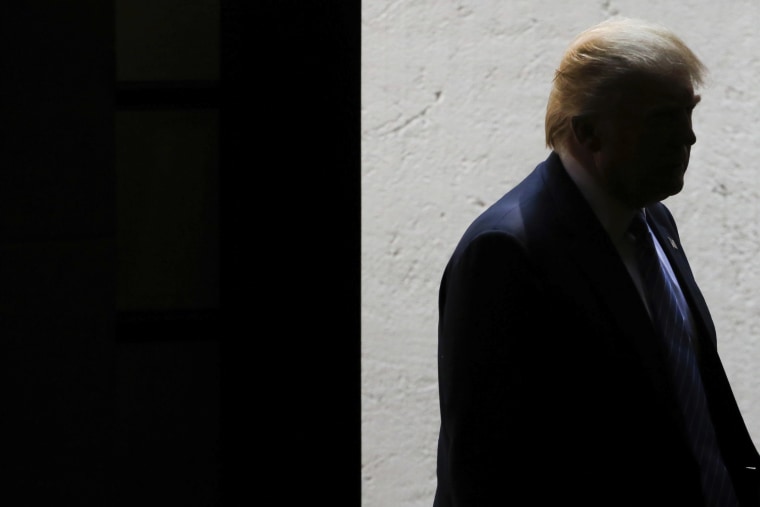During a brief Q&A with reporters yesterday, Donald Trump said, "We're going to be having a major statement on the border sometime later today or tomorrow.... It will be a statement having to do with the border and having to do with people illegally coming over the border. And it will be my biggest statement, so far, on the border."
No one outside the White House had any idea what he was talking about until the tweets were published last night.
President Donald Trump said Thursday night that the United States would impose a 5 percent tariff on all Mexican goods starting next month, saying the sweeping tariffs would rise monthly to as high as 25 percent "until Mexico substantially stops the illegal inflow of aliens coming through its territory."
Some White House officials tried to talk the president out of pursuing such a policy, but as is usually the case, Trump ignored them.
And that's unfortunate because this is not a good idea.
It's worth emphasizing at the outset that it's an open question as to whether these tariffs will actually be imposed. Trump says they will be, but Trump says a lot of things, only some of which reflect reality in a meaningful way. The policy -- I'm using the word loosely -- will purportedly kick in on June 10, though no one should be too surprised if, between now and then, the president backs off.
Indeed, it's easy to imagine him telling a fanciful tale about how this threat worked and produced dramatic changes, even if those changes are imaginary. This is, after all, exactly what happened in early April, when Trump announced plans to close the border, only to back off soon after, pointing to developments that weren't real.
Complicating matters, it's an open question as to whether the president even has the legal authority to impose these tariffs. Even some Republicans suspect he does not.
But for the sake of conversation, let's say the administration fully intends to follow through and impose these tariffs. Let's also say they're legal. Will they have the desired effect?
Almost certainly not.
Part of the problem is that no one has any idea what the metrics for success might be. In Trump's tweets, he said he intends to undermine trade between the United States and one of our largest trading partners "until the Illegal Immigration problem is remedied."
But in practical terms, what exactly does that mean? How do officials intend to define "remedied"? The White House held a conference call last night with acting Homeland Security Secretary Kevin McAleenan and acting White House Chief of Staff Mick Mulvaney, and both struggled to flesh out an answer in detail. (Mulvaney specifically told reporters, "[W]e're going to handle this on an ad hoc basis.")
For that matter, how does Team Trump intend to define "illegal"? U.S. law has an asylum process, which some seeking entry into the country can legally make use of. How is Mexico supposed to "stop" -- another word the president used in his tweets last night -- asylum seekers altogether? No one has any idea and the White House has made no effort to explain.
What's more, practical considerations aren't the only point of concern. Trump's new tariff plan also endangers his new NAFTA 2.0 package -- the so-called USMCA -- which the administration formally presented to Congress yesterday.
The president has made this trade deal one of his top priorities for the year, which makes it all the more curious that he'd jeopardize it with a vague tariff gambit.
And finally, there's the economic impact. Trump has struggled to understand how tariffs work, but if he implements his new threat, the Republican will be increasing the costs of all products imported from Mexico into the United States. Given the inter-connectivity of the two economies, the effects could be awful.
As a Washington Post report explained, "The tariffs could undermine an economic relationship that has been deepening for decades, and throw into chaos corporate and agricultural supply chains that have essentially worked in a system without tariffs since the 1994 North American Free Trade Agreement."
All of which raises the obvious for which there is no obvious answer: why in the world is Trump doing this? Is this intended to be a distraction from Robert Mueller? Is the president looking for some "Trump gets tough with Mexico" headlines as part of his re-election campaign?
Or does he genuinely believe that he can pressure Mexico into ending all illegal immigration, even if it means disrupting both countries' economies in the process?
